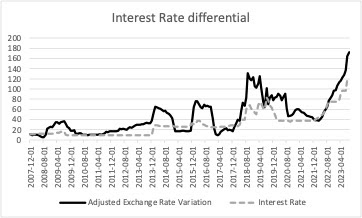I listen to a few podcasts during my commute. Two that I often appreciate are Know Your Enemy, associated with Dissent Magazine,* a series of interviews on mostly right wingers by Matthew Sitman and Sam Adler-Bell, and Past, Present and Future, a series of monologues by David Runciman, sponsored by the London Review of Books. Both are always entertaining and informative. I'm not a specialist in most of the subjects they discuss. However, two recent episodes (or at least I listened to them recently), one from each, dealt with economic issues, and they did leave a lot to be desired, to say the least.
Very briefly, the issue with the interview with Jennifer Burns about her biography (in many ways, from this interview, and the one with Tyler Cowen, it is hard not to see it as a hagiography; more on that as soon as I read the book; it's been ordered. I hope that's just a perception and that the book provides a more balanced view of his contributions and political views) of Friedman is that the hosts accepted almost all of her very monetarist interpretation of the Allende government, and her whitewashing of Friedman's relation with the Pinochet regime (see on that this and this). In all fairness, at least one of the hosts (sorry, not sure that was Matt or Sam) questions (around 1:16) the validity of her interpretation of the relation of Friedman with the regime. But there seems to be a complacent view according to which inflation in Chile was caused by excessive monetary printing driven by the expansion of the welfare state.
The role of the US sanctions, and Nixon's infamous instruction to "make the economy scream" are never cited. And the lack of dollars was at the center of the depreciation of the currency, inflation and the collapse of the economy. Let alone that the Pinochet period wasn't that good (yes they do claim that it created the basis for future growth, a typical conservative trope, that I should write about; in another occasion). I also recommend this post by Tom Palley. On a general evaluation of the regime see this piece by Jim Cypher in Dollars & Sense.
The issues with Runciman's podcast are considerably more problematic. They don't entail a misrepresentation of the ideas of a crucial intellectual, in this case, David Hume. In fact, Runciman is relatively correct when it comes to Hume's essentially negative views of public debt (which were not all that different than those of Adam Smith, at least according to Donald Winch**; btw it was called public credit at that time, so nothing weird about it). He makes to much of Hume's drastic solution, default, for public debt, and its comparison with suicide, for the nation not the individual. And he does recognize that events essentially proved Hume wrong.
But then he commits all of Hume's (and modern mainstream economics). Presumes that the only way out of debt is to run persistent surpluses, printing money and reducing its value in real terms (endorsing a Monetarist view of inflation; it's amazing how pervasive it is), and default. He misses that debts can fall as a share of income (GDP), that is, the ability to repay, if the economy grows faster than debt (the rate of interest), and that most debt consolidations actually happened that way, while running deficits. He also gives Argentina as an example of a country that has defaulted without noticing the differences between debt in domestic and foreign currency. It's a mess. Worse, in an environment in which many conservatives want to promote default in the US he suggest that talking about it would be reasonable. He is out of his depth, should apologize and invite someone to explain the problems with his analysis.
Again, I'm only commenting on these two episodes, because they do seem off, when compared to the quality of both podcasts in general.
* I published almost 20 years ago on Dissent. Because of this I did search their online archive and my piece, and my name was misspelled. Also, it was published in the Winter of 2004, and not of 1984. In the original magazine it was spelled correctly. Oh well.
** See Donald Winch, "The political economy of public finance in the 'long' eighteenth century," in John Maloney (ed.), Debt and Deficits: An Historical Perspective, Cheltenham: Edward Elgar, 1998.


